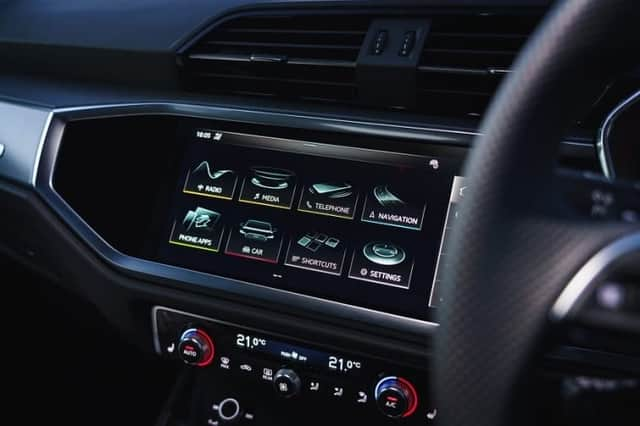Used cars a ‘treasure trove’ of sensitive personal data - here's how to protect your privacy


As many as four out of five drivers are risking giving away sensitive personal data when they sell their car, according to Which?
As cars and their media/information systems become more complex, the consumer group is warning that the majority of drivers are failing to take steps to remove their own information before selling a car.
Advertisement
Hide AdAdvertisement
Hide AdMost modern cars feature some form of smartphone pairing which syncronises data between phones and the car. This can involve the transfer of information stored on the phone, including contacts’ details, message history, the driver’s home and work addresses and even wifi codes.
A survey by Which? found that more than half (54 per cent) of drivers had linked their phone to their car but a similar proportion (51 per cent) didn’t unsync their device before selling the vehicle and 31 per cent took no steps to remove their personal information from the car.
Privacy risks
Of the 14,000 drivers questioned for the survey, 79 per cent said they didn’t follow the manufacturer’s instructions on deleting data and resetting the infotainment system prior to selling their car.
Which?’s experts have warned that failing to do so could leave private information accessible to any subsequent owners of the car, allowing them to see everything from your text messages to the contact details of your friends and family.
Advertisement
Hide AdAdvertisement
Hide AdThey also raised concerns over connected car apps that allow owners to access car information, lock and unlock it and even start the engine via their phone, warning that failing to revoke permissions for these apps could leave a car accessible to previous owners.
Harry Rose, editor of Which? Magazine, said: “If cars are not treated the same as a smartphone, tablet or other connected devices when it comes to data security, motorists risk giving away a treasure trove of information about themselves when they decide to sell their car.
“Manufacturers must do much more to prioritise customers’ personal privacy so that drivers fully understand how much data their vehicle could be harbouring and how to delete this information in order to eradicate these risks.”
Chris Harris, technical director at transport technology firm Thales commented: “When selling a car, we’re usually quick to remove our possessions – whether that’s CDs, a roof rack, or personalised seat covers. However, many of us are failing to remove our more ‘invisible’ possessions, and with cars becoming increasingly connected, they are swiftly becoming a hotbed for potentially lucrative sensitive data, including addresses, recent calls, and birthdays.
Advertisement
Hide AdAdvertisement
Hide Ad“The majority of us wouldn’t be comfortable sharing this kind of information with complete strangers, so it’s concerning to see consumers unwittingly hand this data across.”
How to keep your data safe
Chris Harris’s quick tips for keeping your data safe when selling your car:
1. Consider all the places where your personal information may be stored, and find out from the car's manual how to delete or erase it. Most of us wouldn’t be comfortable sharing our address, contacts and recent messages with a complete stranger, but that’s effectively what we’re doing by not clearing sensitive data from our cars.
2. Go through any accounts or apps that you may have connected to the vehicle and ensure you’ve logged out and removed any saved data. You won't want the new owner benefiting from services you've subscribed to - and just as importantly, the new owner probably won’t be too grateful when your app unknowingly starts to control their new vehicle.
Advertisement
Hide AdAdvertisement
Hide Ad3. Finally, check for old-school methods of storing data. Did you have a USB stick or CD in the glovebox with music you were playing in the car? What else might that memory stick have had on it? Even files you thought you had deleted can often be recovered from hard drives and USB sticks.